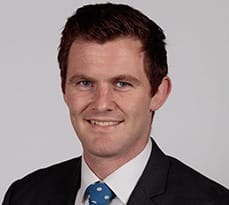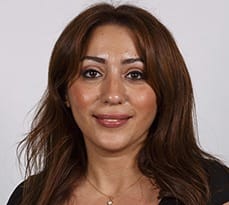Are you considering an MBA, but not sure whether the full-time Cambridge MBA or the Cambridge Executive MBA (EMBA) programme is the best fit?

Both programmes offer a fully comprehensive MBA experience, with a focus on experiential learning, practical application of business skills and a global outlook. Both are delivered by world-leading faculty, both teach core modules in finance, digital marketing and strategy, and both have a diverse class, but what are the key differences and how does that impact your decision?
How much work experience do you have?
The two programmes are aimed at professionals at different stages of their career.
The full-time MBA is aimed at those with at least three or four years’ work experience, who have shown some progression within their career in that time, but are now looking for their next challenge, often in a new role or sector. The average age in the current class is 29, and candidates come to the programme with an average of six years’ work experience.
The Executive MBA is specifically designed to meet the needs of senior executives with at least seven years’ work experience, and who are now aiming for leading roles within their current organisation. They should already have a CV which shows significant progression, seniority and impact. The average age in the current class is 38 and they come to the programme with an average of 14 years’ work experience.
What kind of career transition do you want to make?
Full-time MBA students often join the programme to enable them to make a career transition. As the programme is a 12-month, full-time programme, nearly all students will have left their current employer so they can study in Cambridge, and then move to a different employer after graduation – often into a new sector, location or function.

Tom Stanley (MBA 2016), Citi, said, “As an engineer, numbers and finance had always interested me, and the Cambridge MBA was a perfect incubator for this interest. Further interaction with the wider University network and the MBA Careers Office prepared me for, and inspired me towards, the ‘triple jump’.”
The careers service for full-time MBAs is designed to help students find roles that are suitable for them, facilitate connections with employers and prepare them for interviews.
In contrast, the EMBA is delivered part-time over 20 months, and is designed to fit the busy schedules of senior executives so they do not need to spend significant blocks of time away from their organisation. Participants remain working for their current employer, whilst working towards a more senior role. EMBA students also benefit from executive coaching, insights from practitioners, and being part of a network of senior professionals.
Do you want to study full-time on campus?
The full-time MBA is delivered on-site in Cambridge, during the week. It is an intense experience, with activities outside of core learning such as recruiter events, Student Interest Groups, College and social activities. Students live in Cambridge, close to the School for the duration of the programme, and become an active member of a College, living and socialising with students on other programmes at Cambridge.
The EMBA is delivered over 16 weekends and four week-long sessions, allowing participants to continue with their employment. Participants must be employed full-time to undertake the EMBA, as it is designed so they can apply their new skills immediately within their current roles. EMBA participants are still members of Cambridge Colleges, and enjoy a termly formal dinner, but do not have to live within the city.

Khayala Eylazova (EMBA 2014), Senior Manager, PwC, said, “I loved that the Executive MBA is designed for executives with different backgrounds and experiences. It helped me enhance my leadership abilities, acquire new skills and motivate me in moving to the next level in my career.”
Projects
Both the full-time MBA and Executive MBA have a focus on practical learning, but both programmes offer different experiences. Full-time MBAs undertake four projects, two of which are live consulting projects with real world clients. The Cambridge Venture Project (CVP) starts in October, and forms the learning milestone for core course Management Praxis. The Global Consulting Project (GCP) is a four to six-week project where students consult for a major international client on an issue of strategic importance.
For the EMBA, participants undertake a week-long Team Consulting Project in addition to an individual project, which can be based on a project within your current role. Participants also undertake an International Business Study Trip (IBST), where they have a week of study in a location of economic and business relevance such as China or San Francisco.
Qualifications
Both MBAs require students to have a 2:1 or above (or equivalent) from a recognised university, as well as excellent English language skills (if you are not a native speaker, you must have a TOEFL score of at least 110, or IELTS score of at least 7.5).
For the full-time MBA, the GMAT or GRE is a prerequisite and cannot be waived under any circumstances. The current class average is 696, but there is no minimum score. For the EMBA, if you feel that the skills covered by the GMAT can be demonstrated by your academic achievements and work experience then a waiver can be applied.
So, while there is a great deal of similarities between the Cambridge MBA and EMBA, it should be clearer which programme would best fit your background and experience. If you are still not sure, and would like to get in contact with a member of admissions staff from either programme, you can find out more using the links below.

